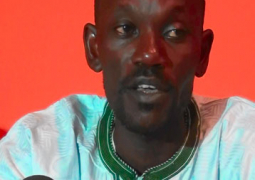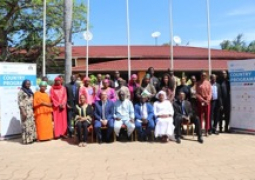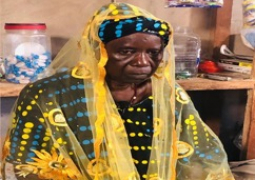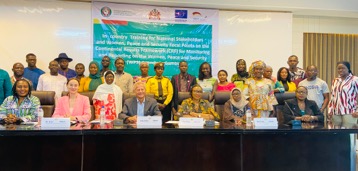
“However, despite the commitment of women to peace building, their voices have not always been heard, and their contributions have not always been fully valued,” she said.
The ECOWAS representative who was speaking recently during the commencement of three-day capacity building training on the Continental Results Framework (CRF) for Monitoring and Reporting on the Women, Peace, and Security (WPS) Agenda, said: “It is for this reason that in 2013, The Gambia took a decisive step by developing its first National Action Plan (NAP) to implement UNSCR 1325.”
With support from the German Federal Ministry for Economic Cooperation and Development (BMZ) and co-funded by the European Union (EU), ECOWAS under its Peace and Security Architecture and Operations (EPSAO) project, the convergence was held at a local hotel in Senegambia.
Speaking further, Miatta French, said: “The Gambia, like many countries in our region, has recognised the importance of the Women, Peace, and Security Agenda in fostering a more inclusive and peaceful society.”
She added: “Following the completion of the life cycle of that plan, a second NAP was developed in 2020, reinforcing the country’s commitment to gender equality and women’s participation in peace and security processes.”
The Gambia, she went on, has faced “significant hurdles in addressing issues such as sexual and gender-based violence (SGBV), which spiked during the COVID-19 pandemic.”
“The legacy of past political unrest and human rights violations continues to disproportionately affect women and girls. While women have played crucial roles in peace-building and post-conflict construction efforts, they are often excluded from formal peace negotiations and decision-making processes,” she claimed.
Rugiatou Kah, the permanent secretary at the Ministry of Gender, said: “The Gambia is part of the countries that adopted the United Nations Security Council Resolution 1325 on Women, peace and security.”
“As a fulfillment of the obligation placed by the United Nations in 2012, The Gambia developed and implemented its first UNSCR1325 Action Plan 2012-2016. The plan focuses on key actions for the implementation of the resolution.”
“This has made it possible for the harmonisation and domestication of the resolution into Gender and Women Empowerment Policy 2010-2020 and provide greater participation and representation of women in decision- making processes within governance institutions, and within national and international conflict prevention management and resolution mechanisms.”
The plan, she said, was anchored on three main pillars namely Protection, Participation and Prevention dubbed the 3Ps.”
The Gambia, she continued, is currently implementing its second generation UNSCR 1325 on Women Peace and Security National Action 2021-2025, adding: “This action plan was developed to build on the gains made during the implementation of The Gambia’s first Action Plan 2012- 2020.”
Enya Braun, Lead Delegate of the European Union said the lack of reliable data has often been a stumbling block in advancing the WPS agenda.
“At the European Union level, we have seen how effective data collection and reporting can play a pivotal role in driving gender equality and ensuring the meaningful participation of women in peace and security.”
The EU Gender Action Plan (GAP) III (2021-2025), he said, mandates member states to track and report on their progress in promoting gender equality across all sectors, including peace and security.”
The German Ambassador to the Gambia, Klaus Botzet, said: “The availability of accurate data remains a significant hurdle, yet it is essential for prioritising issues and mobilising resources effectively. This training is therefore not only timely but also crucial.”
The German federal government, Envoy Botzet said, is committed to fostering just and resilient societies globally, including in the West African region, through its feminist development policy.
“This policy seeks to dismantle discriminatory structures affecting women, girls and marginalised groups, focusing on the three R’s – rights, resources and representation,” he postulated.
Read Other Articles In National News
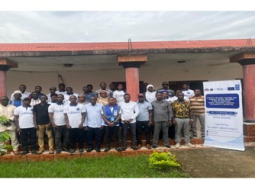
GALGA drives financial governance reform with new training for local councils
Nov 21, 2025, 12:11 PM
